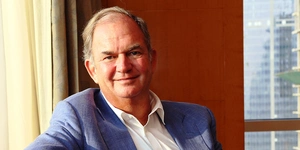I was recently invited to speak at a pan Indian Institute of Technology (IIT) festival organised by the entrepreneurial hotbed, IIT Delhi on the future of B2C industries in India. It is a very interesting topic and is relevant from an entrepreneurial perspective, as an end consumer, as a future employee, and as an outside observer.
The larger consumption story has massive ramifications in India as ~60% of our GDP is consumption-led by consumers like you and I. However, to predict the future of B2C industries in India, it is important to understand four mega and potentially counterintuitive consumer trends playing live and the resultant opportunities that arise from it.
Extreme localisation: What sells in Lucknow doesn’t sell in Kanpur
It has been common knowledge amongst leading FMCGs that India is not one homogeneous country and, in fact, there are ‘many Indias’ within India. Consumer and trade behaviour changes every 100 miles leading to the necessity of hyper-customised route-to-market models.
With the advent of Covid-19, this trend has accelerated with the likely mechanism of extreme localisation kicking in. Consumers, rather than belonging to a broader segment or consumer persona, are increasingly trending towards nuanced extreme localisation with implications across buyer values, preferred channels, and product preferences. After all, what sells in Lucknow doesn’t sell in Kanpur and what the consumer in Mumbai demands might not be the same as the consumer in Pune. The brand values expected from a consumer in Delhi might be very different from the one in Noida!
Rise of nano-influencers: You and I actually matter
Over the last few years, mega-influencers, with followers in excess of at-least a lakh have been on the radar of leading B2C companies. However, with extreme localisation being accelerated, mega-influencers might not be able to homogenise their offerings across a large following base. As a result, going forward, mega-influencers are likely to remain less important, while real engagement is going to be driven by nano-influencers, with followers less than 10,000, like you and I. Nano-influencers will be found to be more authentic and drive a higher quality of engagement. Leading FMCGs like Pepsi have already started tapping into the rise of the nano-influencer in their promotion campaigns.
Focus on health, spirituality, and wellness: Where the mind is without fear
The pandemic led to a sharp spurt in awareness and pronounced impact of poor mental health. With extreme localisation, harmful effects of social media, earlier advent of lifestyle diseases, and ridiculous societal expectations, the negative impact on mental health is likely to be accelerated going forward.
One of the biggest healthcare trends in the upcoming decade is going to be the single minded focus on health, spirituality, and wellness ahead of money, relationships, and professional success. It is going to be fairly normal for employees to leave their high profile jobs and toxic relationships for better health prospects and pursue peace of mind as a life objective. It will be increasingly common for employees to permanently work out of exotic locations like Goa, Coorg, Landsdowne even after the pandemic goes away.
Rise of minimalism among Gen Z: Avoid keeping up with the Joneses
This trend can end up being contradictory in nature. With our economy being led by individual consumption and multiple nudges like sharp discounts, tax breaks, increased occasions being carefully introduced to spend more, it is likely that the next generation of consumers are likely to spend more than the millennial consumers.
However, given the increasing emphasis on mental health and wellness, there is going to be a sharp emphasis in the ‘East Asian style minimalism’ amongst Gen Z consumers. Recyclable fashion might be coupled with digital detox and minimal usage of gadgets along with reducing plastic waste with an eye on the larger environment.
Views are personal. The author is a strategy consultant. He has written three books.










Leave a Comment
Your email address will not be published. Required field are marked*